Can cats get worms from eating flies? Is it okay for cats to eat flies?
This post is filled with essential information, expert advice, and practical tips to help you care for your cat in the best way possible.
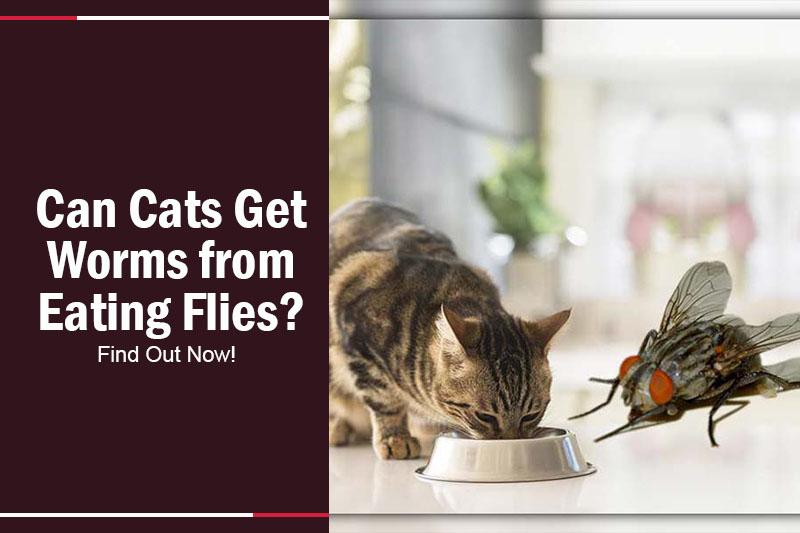
1. Can Cats get worms from eating flies?
Yes, cats can indeed get worms from eating flies. Flies often carry worm eggs, like those of tapeworms and roundworms. If a cat eats a fly, it might swallow these eggs, which can cause an infection.
While eating flies usually doesn’t kill cats, flies can spread bad bacteria and germs that make cats sick. Also, having flies around increases the chances of cats getting worms inside their bodies.
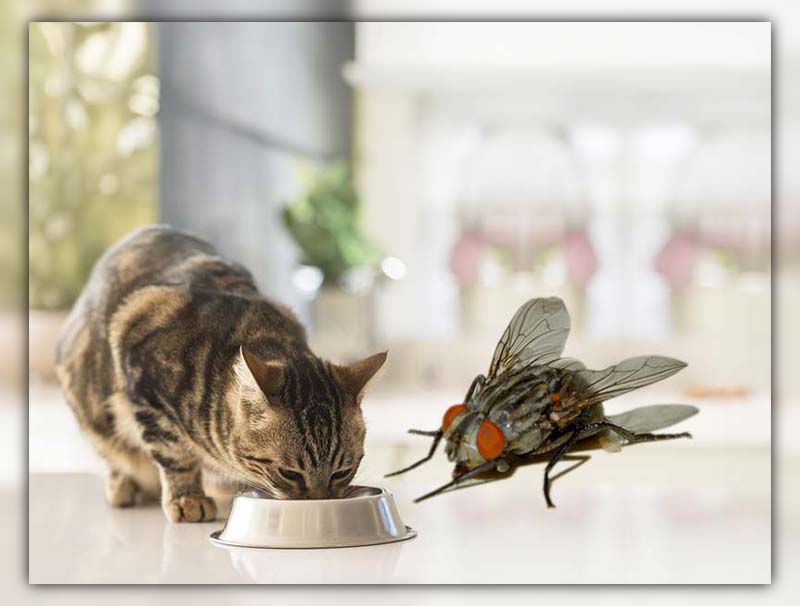
2. What types of Parasitic Worms do flies Transmit?
Flies can transmit several types of parasitic worms to cats, including:
Hookworms
These are tiny intestinal parasites that attach themselves to the lining of a cat’s intestines using their hook-like mouths. They feed on the cat’s blood and tissue fluids. Hookworms are hard to spot with the naked eye and can cause ulcers in the intestines where they’ve fed.
Symptoms of a hookworm infection in cats include anemia, pale gums, tiredness, blood in the stool (making it look tarry), poor fur quality, weight loss, and skin irritation on the feet and toes. Hookworm infections are generally mild and can be treated with deworming medications, which should be given every two weeks to catch any new larvae.
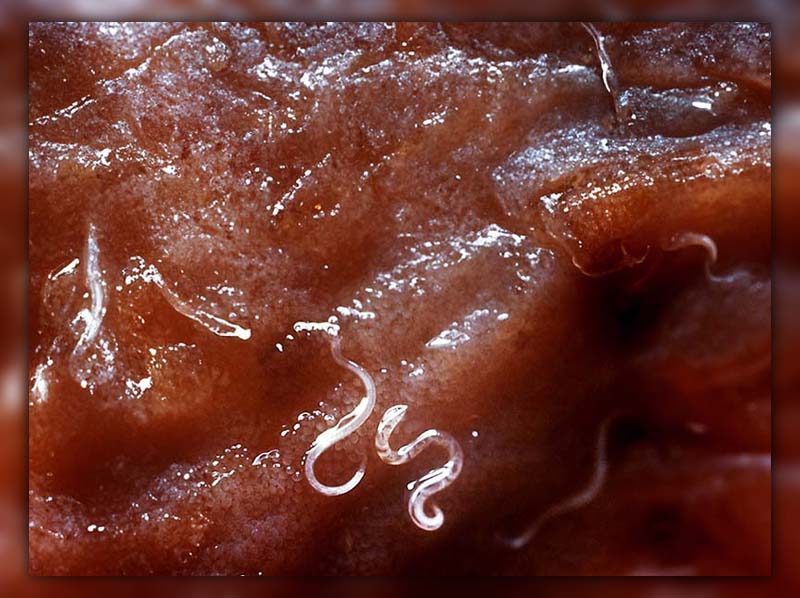
Roundworms
Flies can pick up roundworm larvae from contaminated feces and transmit them to cats. Roundworms are brownish-yellow, round-bodied, and can grow up to 4 inches long. They live in a cat’s gut, feeding on nutrients.
Signs of roundworm infection include failure to gain weight, a bloated belly, dull coat, visible worms in vomit or stool, diarrhea, and coughing (as larvae pass through the lungs). Severe roundworm infections can block the intestines, causing acute vomiting and lethargy. Treatment includes medications, repeated every three to four weeks to kill hatching larvae.
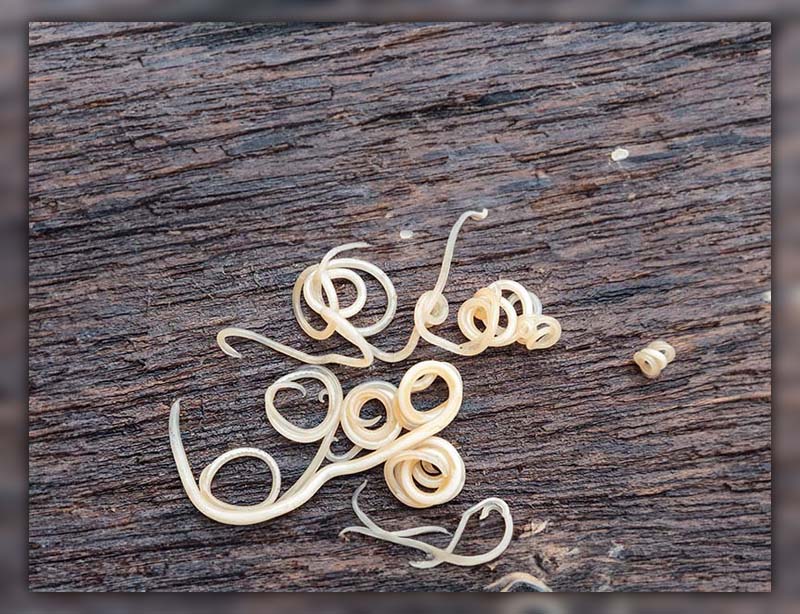
Tapeworms
Though fleas are the most common source of tapeworms for cats, flies can also transmit them. Tapeworms are not usually a major threat and signs of infection include unexplained weight loss, tapeworm segments in feces, and scooting.
Cats with a heavy tapeworm infestation may vomit live worms. Treatment is straightforward with dewormers.
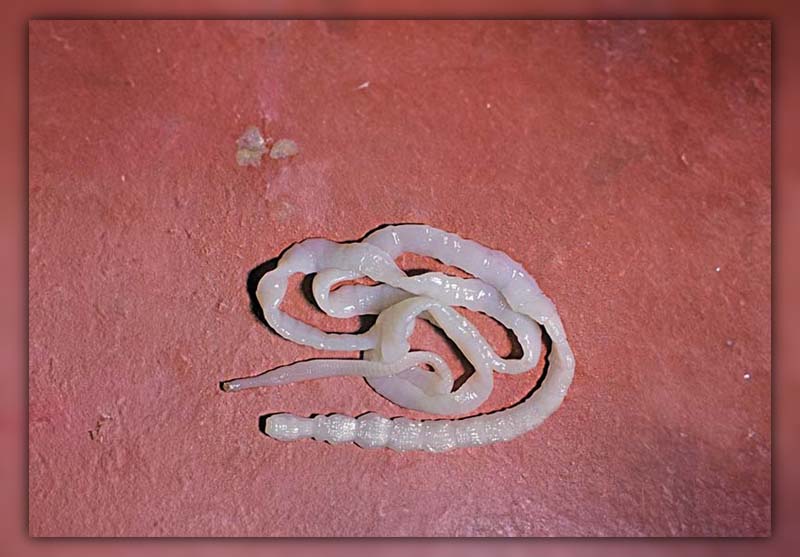
Stomach Worm
Flies can pass on stomach worms to cats. These worms feed on the cat’s nutrients, either by consuming tissue or feeding off blood vessels. They can inhabit various parts of the body, including the lungs and gastrointestinal system, but mainly live in the stomach and start of the small intestine.
Stomach worms are pink to tan and can reach 2.5 inches in length. Symptoms include vomiting, loss of appetite, and finding worms in vomit or feces. Treatment may require surgical removal or drugs to kill the parasite.
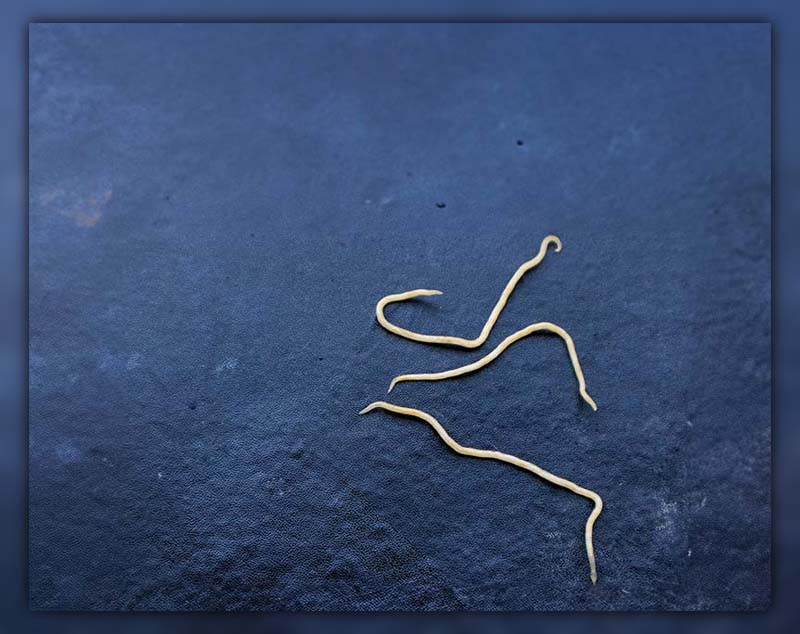
3. How to prevent your Cat eating flies?
To prevent your cat from eating flies, consider the following steps:
Divert attention
When you notice a fly in your house, draw your cat’s attention away with its favorite toys.
Toys that mimic hunting, like pretend mice, laser pointers, or feathers on sticks, work well. As you engage your cat in play, open a window or door to let the fly out.
Offer snacks
Redirect your cat’s attention by giving it treats when there are flies around. Your cat will likely find the treat more appealing than the fly, and it won’t be as inclined to chase the fly. While your cat is busy with the snack, you have an opportunity to remove the fly from the area.
Eliminate the Flies
Help guide flies out of your house by gently ushering them toward an open window or door, using a magazine or similar object to direct them. Avoid using toxic insecticides near your cat, as they can be harmful if ingested. Non-toxic, cat-safe methods are preferable for getting rid of flies.
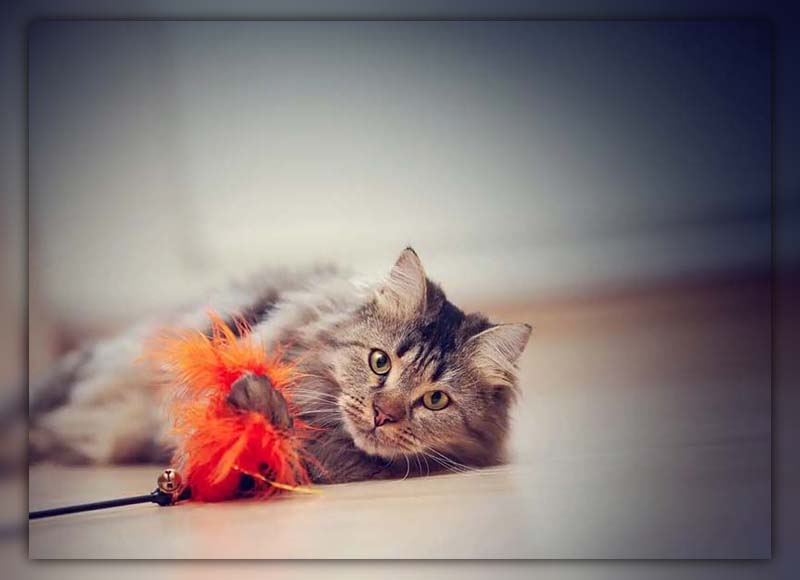
4. How to Keep Flies Away from Cats?
To keep flies away from your cat, especially if your home is prone to fly invasions and your cat enjoys chasing them, you can adopt the following strategies:
- Install Mesh Screens: Fit your doors and windows with mesh screens. This allows air to circulate while preventing flies from entering.
- Store Uneaten Cat Food Properly: If there’s leftover wet cat food, cover it and store it in the fridge to avoid attracting flies.
- Cover Food Waste and Clean Spillages: Ensure that all food waste is covered and promptly clean up any food or drink spills.
- Promptly Remove Cat Feces: Clean up cat feces from your yard immediately to prevent attracting flies.
- Use Citronella Candles: Place citronella candles around your home. They are a natural fly repellent.
- Spray Natural Repellents: In absence of citronella candles, use natural sprays like lemongrass, peppermint, lavender, or eucalyptus around your home, as flies dislike these scents.
- Keep Your Yard Clean: Avoid leaving grass clippings or piles of leaves near your house, as they can attract flies.
- Avoid Mouse or Rodent Traps: These traps can attract flies if they catch anything. If you must use them, dispose of any caught rodents promptly and safely.
- Safely Dispose of Dead Animals: If you find dead rats, mice, or birds, place them in a sealed bag and dispose of them in the bin immediately.
Following these steps can significantly reduce the presence of flies in your home, lowering the chances of your cat catching and eating them.
Conclusion
In conclusion, the answer to the question ‘Can cats get worms from eating flies?’ is yes, and it’s a topic every cat owner should be aware of. Protect your feline friend by staying informed.
For more insightful articles on pet health and pest-related topics, explore our Pestweek blog.

Calina Mabel has over 15 years of experience in the field of journalism and communications. Currently, Calina Mabel is the Content Writer for categories such as Cockroach, Ants, Bed Bugs, Mosquito, Rodent, Termite, and Flies on Pestweek.com. She aims to build content for these categories with a focus on providing valuable and accessible information to readers, in order to create the world’s largest knowledge community about Pests.
All content written by Calina Mabel has been reviewed by Emily Carter.

